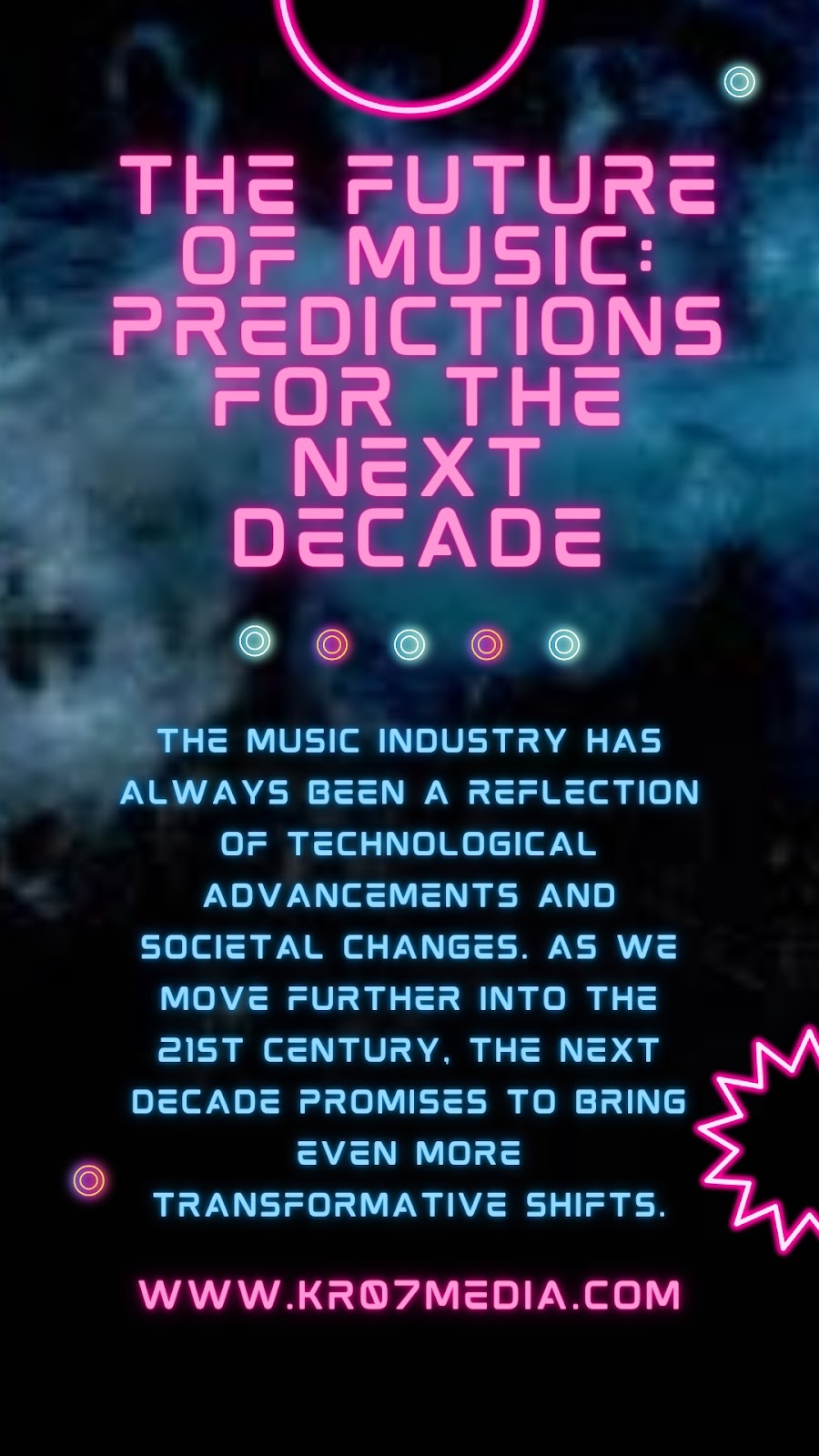The music industry has always been a reflection of technological advancements and societal changes. As we move further into the 21st century, the next decade promises to bring even more transformative shifts. Here are some predictions for what the future of music may hold:
1. Artificial Intelligence and Music Creation
Artificial Intelligence (AI) is poised to revolutionize music creation. AI-powered tools can already compose music, and their capabilities are expected to expand. These tools will assist artists in composing, mixing, and mastering tracks, providing endless creative possibilities. While AI may never replace the human touch in music, it will undoubtedly become an essential collaborator for musicians, enabling them to explore new sonic landscapes and experiment with different styles and genres.
2. Virtual Reality Concerts
The COVID-19 pandemic accelerated the adoption of virtual events, and this trend is here to stay. Virtual reality (VR) concerts will become more immersive and interactive, offering fans unique experiences that transcend physical boundaries. These VR concerts will allow fans to attend performances from their favorite artists regardless of location, providing new revenue streams for musicians and creating a more inclusive music industry.
3. Blockchain and Music Rights
Blockchain technology will play a crucial role in the music industry, particularly in terms of rights management and royalties. By utilizing blockchain, artists can ensure transparent and fair compensation for their work. Smart contracts will automate royalty payments, reducing disputes and ensuring that artists receive their fair share. This technology will empower independent musicians by giving them greater control over their creations.
4. Personalized Music Experiences
With the vast amount of data available, music streaming services will continue to refine their algorithms to provide highly personalized music experiences. These platforms will leverage AI to predict and recommend songs based on individual listening habits, moods, and activities. This level of personalization will deepen listeners' engagement and introduce them to a wider array of artists and genres.
5. Sustainability in the Music Industry
As environmental concerns grow, the music industry will also need to adapt. From reducing the carbon footprint of tours to embracing eco-friendly production methods, sustainability will become a significant focus. Artists and industry professionals will explore innovative ways to minimize environmental impact, such as using renewable energy sources for events and promoting digital releases over physical ones.
6. The Evolution of Music Education
Music education will undergo significant changes with the integration of technology. Online platforms and virtual lessons will make music education more accessible, allowing aspiring musicians to learn from the best instructors worldwide. AI-driven educational tools will offer personalized feedback and guidance, helping students improve their skills more efficiently.
7. Augmented Reality in Music Production
Augmented Reality (AR) will enhance music production by providing interactive and immersive experiences for both creators and listeners. Musicians will use AR to visualize soundscapes and manipulate audio elements in real-time, creating a more intuitive and creative process. For listeners, AR can offer new ways to engage with music, such as interactive album art or live performance overlays.
8. The Rise of Independent Artists
The next decade will likely see a continued rise in the prominence of independent artists. With the democratization of music production and distribution, more musicians will bypass traditional record labels. Platforms like Bandcamp, SoundCloud, and social media will enable artists to reach global audiences directly, retaining more control over their careers and revenues.
9. Health and Wellness through Music
Music's therapeutic potential will gain more recognition, leading to its increased use in health and wellness practices. From music therapy sessions to apps designed to reduce stress and anxiety through music, the industry will explore various ways to leverage music for mental and emotional well-being. This trend will highlight music's role not just as entertainment but as a vital component of holistic health.
10. Global Music Fusion
Cultural exchange through music will become even more pronounced. As the world becomes more interconnected, artists will draw inspiration from a diverse range of global sounds, leading to innovative fusions of genres. This cross-cultural pollination will enrich the music landscape, offering listeners a more varied and eclectic musical experience.
In conclusion, the next decade promises exciting advancements and transformations in the music industry. From AI-driven creation to blockchain-based rights management, the future of music will be shaped by technology, sustainability, and a growing appreciation for diversity. Musicians and listeners alike can look forward to a dynamic and innovative era in music.



